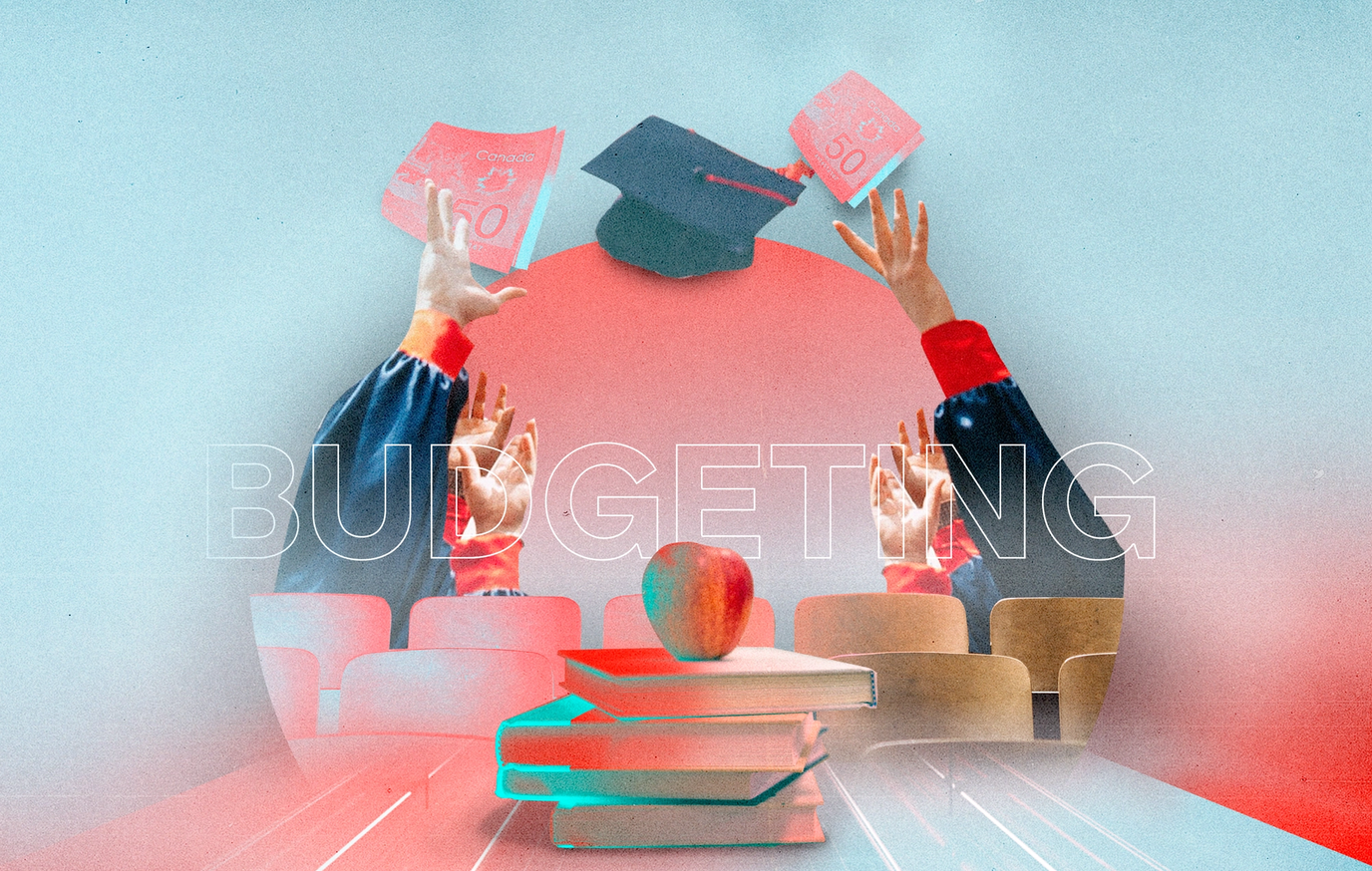Being a student means juggling a lot. You're dealing with schoolwork, maybe living on your own for the first time, buying groceries, and paying bills. All this stuff requires you to track your money.
A budget is simply a plan for your money. It shows what comes in (income or allowance) and what goes out (expenses) each month. With a budget, you can see where your money's going and make better choices about spending and saving.
Costs to include in your budget
When making your student budget, include all these expenses:
Tuition fees
This is what you pay to take classes at your school. Fees vary based on:
Your program
The school
Which province you're in
Your citizenship status
How many classes you take
Whether you're full-time or part-time
Check your school's website for exact tuition costs.
Student fees
You'll pay extra fees for things like student unions and administration. These depend on your school.
Health insurance
Most schools include private health insurance in your student fees. This covers medical or dental costs not included in your provincial coverage.
If you already have insurance through your job or family, you might be able to opt out. But most schools only let you do this in the first few weeks. You'll need to show proof of your other coverage.
Books and course materials
These costs depend on your program. To save money, you can:
Buy used books
Shop online instead of at the campus bookstore
Get e-books
Borrow from the library
Sell your books when you're done
Use older editions if your professor allows it
Living on campus
Check your school's website for residence and meal plan costs. Sharing a room is usually cheaper than getting a single.
Living off campus
Living with roommates or family can save you thousands each year. Costs vary by location - rent in small towns is usually much less than in big cities.
Don't forget to budget for food, utilities, internet and tenant's insurance. Many grocery stores and restaurants offer student discounts on certain days.
Transportation
If using public transit, check the cost of a student pass.
If driving, factor in parking fees and gas. Public transit is often cheaper. Carpooling is another option.
For students living away from home, include the cost of visits. Most airlines, buses and trains offer student discounts.
Entertainment
Budget for things like sporting events, movies and streaming services. Focus on needs over wants.
Student discount cards can help cut these costs.
Rising costs
Remember that tuition and living expenses often go up each year due to inflation. Update your budget annually to reflect these increases.
Sources of income
When planning your student budget, think about where your money will come from. This might include personal savings, working while studying, or help from your parents.
Consider putting your savings in a KOHO high-interest savings account to earn more on your money. With interest rates at 4%, you can grow your student funds while keeping them easily accessible for when you need them.
Also look into:
Scholarships
Grants
Government student loans
Student lines of credit from banks
Tax deductions and tax credits for students
Students qualify for many tax breaks. What you can claim depends on whether you're full-time or part-time.
Tax deductions lower your taxable income. As a student, you might claim:
Moving expenses
Childcare expenses
Tax credits reduce the tax you owe. You might qualify for credits on:
Tuition fees
Books
Public transit
Interest on student loans
File your taxes on time every year to avoid penalties.
Paying back student debt
Canada Student Loans
After finishing school, switching to part-time, or taking time off, you get a 6-month break before repayments start. Log in to your National Student Loan Service Centre account to set up your payment plan.
Provincial student loans
Repayment rules vary by province. Check how to repay your loan in your area.
Student lines of credit
With these, you'll pay interest on what you borrow even while you're still in school.
Student credit cards
Credit card companies love campus recruiting. Most student cards charge about 21% interest. If you don't pay the full balance each month, this gets expensive fast.
Compare cards to find one that fits your needs.
Include your payments in your budget
Factor debt payments into your budget and try to pay more than the minimum when possible. Setting up automatic payments with your bank helps you avoid missing due dates.
If you have multiple loans or credit cards, keep track of different payment dates.
Use the Budget Planner to include all your debt payments.
How student debt affects your credit score
Student loans and lines of credit show up in your credit history. Missing payments hurts your credit score.
A poor score makes it harder to borrow money later, get a job, or even rent an apartment.
You can order a free copy of your credit report from KOHO to see where you stand.
Creating your first budget can feel overwhelming. That's why we've made a simple, ready-to-use student budget template you can download for free.

About the author
Quan works as a Junior SEO Specialist, helping websites grow through organic search. He loves the world of finance and investing. When he’s not working, he stays active at the gym, trains Muay Thai, plays soccer, and goes swimming.
Read more about this author